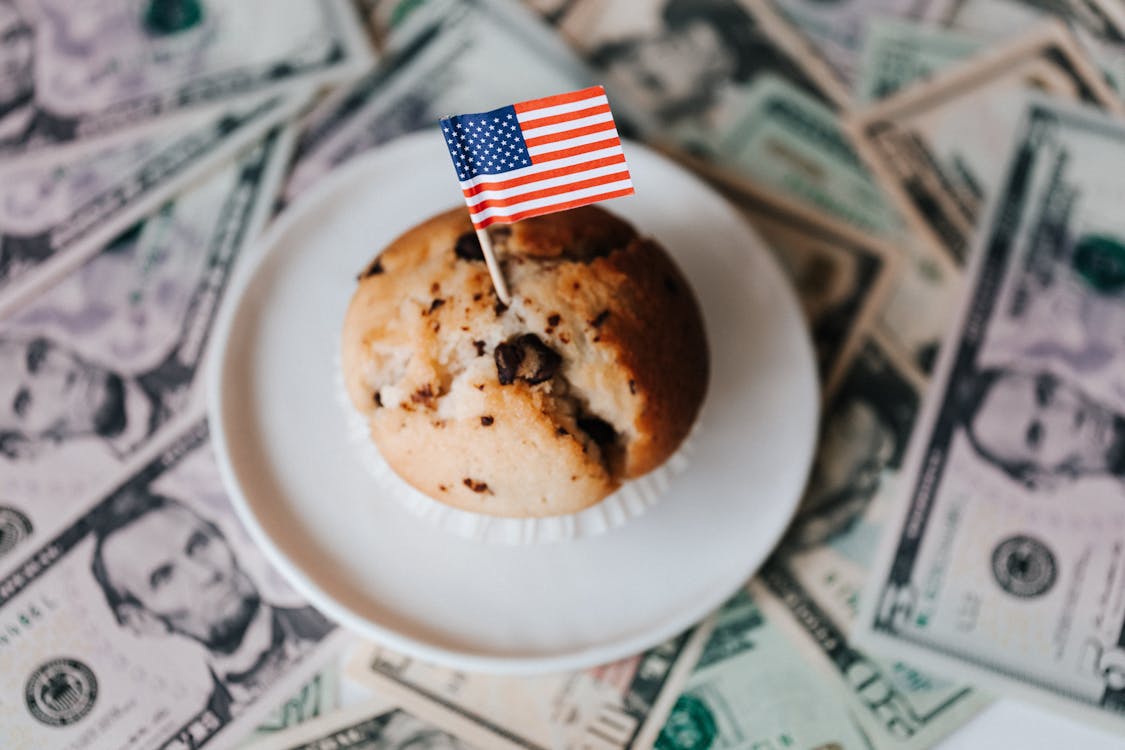
 Image Source: Pexels
Image Source: Pexels
The US Fed has cut its policy rate by 25bp. They acknowledge that policy remains restrictive and that further cuts are likely but that the pace of those cuts may slow. They were reluctant to discuss the ‘Trump effect’, but here’s the risk: slightly firmer growth with more inflationary pressures. And that might lead to a less aggressive rate-cut narrative.
25bp cut but policy remains “restrictive”
As almost universally expected, the Federal Reserve has cut rates by 25bp to leave the target range for the federal funds rate at 4.5-4.75%. It was a unanimous decision this time (Michelle Bowman voted for 25bp rather than the 50bp cut the Fed delivered in September), and there were only minor tweaks in the statement. There was a bit of market excitement initially when it was spotted that the Fed said “inflation has made progress toward” 2% rather than “further progress” as written in September, but this was a very minor shift.It also appeared that Chair Powell wanted to give as little away as possible on the implications of a Trump Presidency. Powell refused to ‘speculate’ on what it may mean at the press conference, with fiscal policy only going into their models once it is enacted. Nonetheless, he did state that monetary policy remains ‘restrictive’ and they will continue to decide policy on a meeting-by-meeting basis although, as they get closer to neutral, it may be ‘appropriate’ to slow the pace of interest rate cuts.
Fed funds ceiling rate with duration between last hike in a cycle and first rate cut
 Source: Macrobond, ING
Source: Macrobond, ING
A more gradual rate cut profile looks likely
In terms of where we go from here, inflation is looking better behaved and the jobs market is cooling but not collapsing, so the Fed is in a position to continue loosening monetary policy closer to neutral gradually. We think they will cut by 25bp again in December, but the outlook thereafter is less clear and there is a strong chance of a pause at the January FOMC meeting.Previously, the market was expecting the Fed funds rate to bottom somewhere in the 3-3.5% area by next summer. With Donald Trump winning the presidency, his key policy thrusts are extended and expanded, including tax cuts, tariffs, and immigration controls. This may keep the growth story more supported in the near term, but there is likely to be more concern at the Fed about the inflation implications from trade protectionism and labour supply constraints. As such, the market has moved to price a slower, more gradual easing cycle with a slightly higher terminal rate of 3.5-3.75%. We agree with this right now.Nonetheless, the cooling jobs market remains an important story, while the sharp move higher in longer-dated Treasury yields (80-90bp higher since the Fed cut rates in September) could become a significant headwind for growth. We now forecast the 10Y yield could rise above 5% in 2025 on fiscal sustainability and inflation worries. This will push consumer and corporate borrowing costs and could become a major headwind for growth.
Fed will soon tell us what they think Trump 2.0 means
Like the rest of us, the Fed only has an early sense of the direction of travel post-election; what Trump proposed during his campaign and what he eventually delivers as president may be very different. The Fed won’t want to pre-empt a set of policies that may not come to fruition. However, they will be releasing new economic projections at the December FOMC meetings, and their call on what Trump 2.0 might mean will be fascinating.Our view is that while the growth trajectory in the near term a little more encouraging, the more aggressive he goes on trade and immigration policies and the higher Treasury yields push, the more challenges this may present for the US economy over time.
Dollar and Treasuries dominated by retracement activity
The FOMC meeting and press conference have not had much of an impact on the FX and debt markets. If there was any move during the press conference, it was briefly to a slightly firmer dollar and a 5bp rise in short-dated US Treasury yields when Chair Powell seemed to imply that downside economic risks had receded compared to when the Fed was putting together its economic projections in September.One interesting question was whether the 75bp climb in US Treasury 10-year yields had tightened financial conditions enough to be material to the Fed. Powell didn’t think so and blamed the rise in yields on better growth prospects rather than on inflation.However, today’s widely expected rate cut and neutral press conference took a back seat to retracement activity in the FX and Treasury markets. Today, the dollar and US 10 yields have roughly retraced half of their election-day surge. Driving today’s trade is likely position adjustment after a near one-way run in both markets since early October.We cannot rule out some modest further retracement here as investors continue to pocket any gains after a steady six-week trend. Yet, the prospects of looser fiscal and less dovish Fed policy through 2025 should limit the downside to both the dollar and especially long-dated US Treasury yields over the coming weeks and months. Please see the latest ING Monthly for more on our FX and Rate views.More By This Author:Asia Week Ahead: China Data Dump In Focus Bank Of England Cuts Rates And Downplays Budget Impact The Commodities Feed: Complex Recovers
















